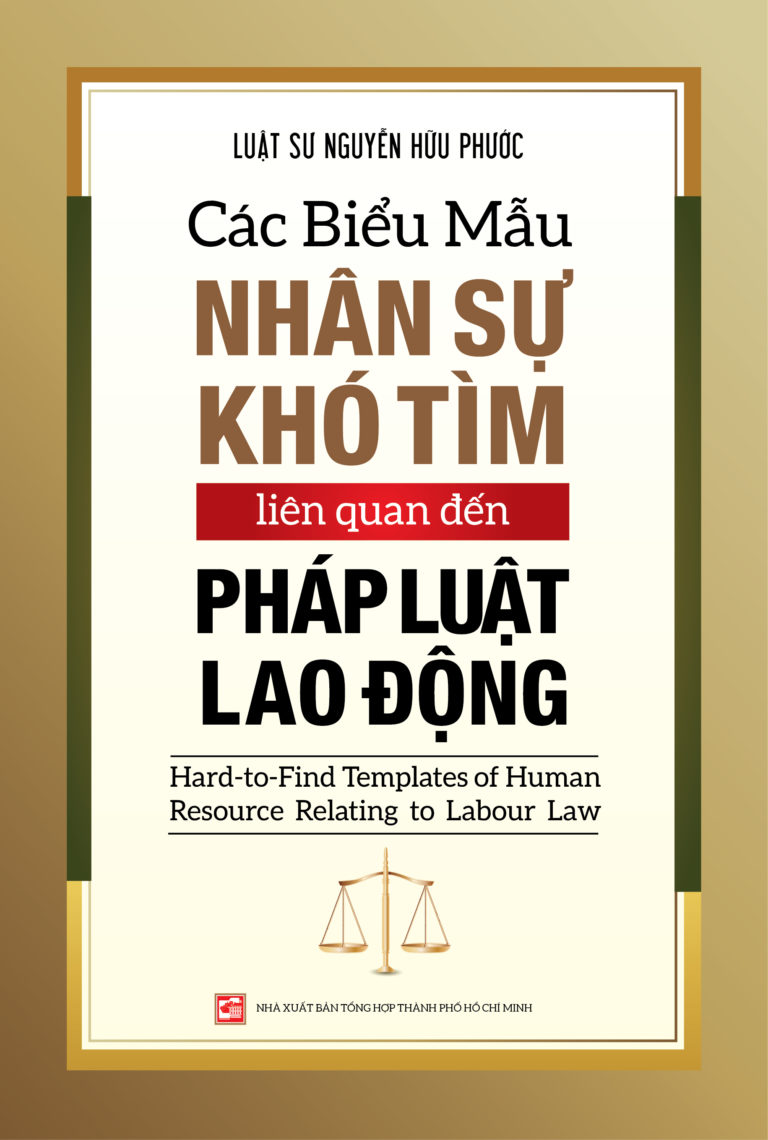The Role Of Lawyers In The Pre-Litigation Stage Of Debt Recovery
In business operations, the occurrence of debts is inevitable. However, the debt recovery process is often complex and risky, especially when debtors deliberately delay repayment, disperse assets, or lose the ability to pay. In Vietnam, the pre-litigation stage of debt recovery plays a crucial role in preparing documentation, strengthening evidence, and protecting creditors’ rights before initiating legal proceedings. Within this context, The Role Of Lawyers In The Pre-Litigation Stage Of Debt Recovery becomes particularly significant. Lawyers are not only legal representatives but also strategic advisors who assist creditors in choosing appropriate solutions, minimising legal risks, and optimising time and cost efficiency throughout the debt recovery process.
Understanding the Pre-litigation Stage in Debt Recovery
The pre-litigation stage refers to the period before a dispute is officially brought before the court or arbitration body. At this stage, creditors, with the support of lawyers, take measures such as verifying the debt, collecting evidence, evaluating the debtor’s solvency, and negotiating payment. Although this stage does not yet involve formal legal proceedings, it serves as a foundation for successful litigation or settlement, helping creditors avoid unnecessary procedural complications. In many cases, with proper legal guidance, creditors can recover the debt without resorting to litigation, through negotiation or debt restructuring. The involvement of a lawyer from the very beginning helps ensure that all steps are legally compliant, evidence is properly recorded, and the creditor’s position is legally protected if litigation becomes necessary later.
The role of Lawyers in preparing documentation and assessing debt recovery feasibility
Upon request, the lawyer will review all relevant documents, including contracts, appendices, security agreements (such as mortgages, pledges, and guarantees), payment records, and transaction evidence. The purpose of this review is to determine:
The nature of the debt (e.g. loan, sale of goods, service contract, etc.);
The point in time at which the repayment obligation was breached;
The legal validity of the undertakings and the associated security assets.
Assessing the debtor’s repayment capacity and assets
One of the most important steps in the pre-litigation stage of debt recovery is to conduct a comprehensive assessment of the debtor’s repayment capacity. This serves as the foundation for lawyers to advise creditors on the feasibility of recovery and to determine the most appropriate strategy.
In practice, The Role Of Lawyers In The Pre-Litigation Stage Of Debt Recovery extends beyond merely reviewing documentation. It also involves verifying the debtor’s financial capacity and ability to meet repayment obligations. Lawyers will collect and analyse information from multiple sources – including financial statements, business registration data, records from the secured transactions registry, and other publicly available information – to evaluate the debtor’s business operations and overall financial situation.
Identifying legal risks
Lawyers conduct a comprehensive assessment of potential risks, such as invalid contracts, unregistered security interests, expiry of the limitation period for initiating proceedings, or creditor actions that may constitute illegal debt recovery. With extensive experience and in-depth legal expertise, lawyers help creditors develop a safe and effective debt recovery strategy that ensures both compliance and efficiency while preventing adverse legal consequences. In this regard, The Role Of Lawyers In The Pre-Litigation Stage Of Debt Recovery extends beyond mere legal assistance; they serve as a “risk filter” – ensuring that creditors act lawfully, strategically, and in a manner that maximises the likelihood of success.
The role of Lawyers in negotiation and mediation
In debt recovery, not every case needs to proceed to court or arbitration. In fact, most disputes can be resolved effectively through negotiation and mediation during the pre-litigation stage, particularly when a lawyer is involved. This phase is crucial, as it helps parties save both time and cost while preserving business relationships. At this stage, The Role Of Lawyers In The Pre-Litigation Stage Of Debt Recovery is not limited to that of a legal representative; the lawyer also acts as a strategist and mediator, helping the client achieve the most favourable outcome.
Preparing a negotiation strategy
Before initiating negotiations, the lawyer carefully studies all relevant materials, including contracts, transaction documents, payment history, and communications with the creditor, to clearly understand the client’s specific objectives – whether it be full recovery, loss minimisation, or restructuring the commercial relationship. Based on this understanding, the lawyer formulates a comprehensive negotiation strategy tailored to each case.
This strategy typically includes:
Drafting a formal written demand for payment, specifying the legal basis of the repayment obligation, the deadline for performance, and the potential consequences of non-compliance. This document serves as both the formal commencement of the recovery process and an expression of the creditor’s good faith.
Planning a direct meeting or negotiation session with the debtor, including determining the appropriate representatives, timing, venue, and approach.
Proposing flexible repayment arrangements, such as instalment schedules, conditional extensions, or contract restructuring to enable the debtor to fulfil obligations.
An effective negotiation strategy must be firm enough to exert appropriate pressure yet flexible enough to maintain future cooperation. The lawyer helps the creditor identify the “golden timing” for negotiation – ensuring compliance with the law while safeguarding the creditor’s best interests.
Representing the creditor in negotiations
When formal negotiations take place, the lawyer often acts as the creditor’s direct representative in discussions with the debtor or the debtor’s counsel. The lawyer’s participation ensures that the negotiation process is conducted professionally, in accordance with legal procedures, and within the boundaries of the law. This prevents any acts of coercion, intimidation, or reputational harm that could otherwise be deemed illegal debt recovery under Vietnamese law.
Moreover, the presence of a lawyer also carries psychological weight — debtors tend to take negotiations more seriously when they realise that the creditor has obtained legal representation and is prepared to pursue litigation if necessary. This strengthens the creditor’s position and often leads to a resolution without the need for formal court proceedings.
Drafting settlement agreements or mediation minutes
Once an agreement has been reached, the lawyer assists in drafting a settlement record or a debt restructuring agreement, clearly outlining the remaining debt amount, repayment schedule, penalty interest (if applicable), and any additional security provided. Such agreements serve as critical evidence in the event that the matter later proceeds to litigation.
The role of Lawyers in preparing litigation documentation
When negotiation and mediation fail to produce the desired outcome, The Role Of Lawyers In The Pre-Litigation Stage Of Debt Recovery becomes particularly crucial, as they help creditors transition to the litigation stage lawfully, efficiently, and strategically. The lawyer will review the entire case file to determine both the limitation period for initiating proceedings and the competent court’s jurisdiction, in accordance with the Civil Procedure Code. Accurate identification of these two factors helps prevent cases from being returned, suspended, or dismissed due to procedural errors, thereby safeguarding the creditor’s right to sue.
In addition, lawyers play a vital role in building a strong legal foundation for the litigation process by ensuring that all claims are clearly presented, well-grounded in law, and supported by admissible evidence. They assist creditors in collecting, organising, and finalising evidence, including contracts, payment records, meeting minutes, written notices, emails, debt confirmations, and mediation agreements. A complete and well-structured set of documents can significantly shorten the litigation timeline and improve the creditor’s chances of success in court. Furthermore, lawyers advise clients on litigation costs and the likelihood of judgment enforcement after the court issues a legally effective decision. By analysing the debtor’s asset status, existing disputes, and the risk of attachment or seizure, the lawyer helps creditors evaluate the practical value of pursuing litigation – enabling them to decide whether to proceed with the lawsuit or continue negotiations to protect their best interests.
The benefits of having a Lawyer involved from the pre-litigation stage
Enhancing the likelihood of debt recovery
With their legal expertise and professional negotiation skills, lawyers assist creditors in formulating an effective and tailored debt recovery strategy suited to each debtor’s circumstances. Instead of acting on impulse or insufficient information, lawyers analyse the debtor’s financial situation, evaluate repayment capacity, and advise on approaches that are both persuasive and legally enforceable. Additionally, lawyers prepare a comprehensive and well-documented case file – including authentic evidence and supporting documents – to provide a solid basis for any subsequent legal claim. This ensures that the recovery process proceeds in an orderly and efficient manner, reducing the likelihood of resistance from the debtor. In many cases, a formal payment demand letter drafted by a lawyer is sufficient to prompt voluntary repayment, avoiding the need for litigation altogether.
Minimising legal risks
In many instances, creditors – due to limited legal knowledge – inadvertently violate debt recovery regulations, for example by visiting the debtor’s workplace, disclosing personal information, or exerting psychological pressure. Such actions can result in administrative penalties or even criminal prosecution. When a lawyer is involved, every step taken by the creditor is kept within the bounds of the law, ensuring legality, transparency, and professionalism. The lawyer guides clients on lawful methods such as preparing official notices, recording events through a bailiff, or sending formal written communications. By following legally compliant procedures, creditors can recover debts effectively while avoiding unnecessary disputes or sanctions.
Strengthening negotiation leverage
The presence of a lawyer during meetings, negotiations, or correspondence with the debtor not only enhances the professional image and credibility of the creditor but also exerts a legitimate psychological pressure on the debtor. Knowing that the creditor is legally advised and ready to pursue litigation, debtors are often more cooperative and inclined to settle. Moreover, lawyers can assist in strategically framing the language and tone of negotiation, maintaining a balance between assertiveness and diplomacy to protect business relationships while securing financial interests. In many cases, the lawyer’s well-crafted arguments and timing can lead to a successful recovery without the need to escalate to litigation.
In an ever-changing economic environment, the emergence of bad debts is an inevitable challenge for all businesses. However, the way these debts are handled is what determines a company’s ability to maintain cash flow, reputation, and operational stability. The Role Of Lawyers In The Pre-Litigation Stage Of Debt Recovery has therefore become increasingly recognised as a strategic solution – enabling businesses to proactively protect their interests rather than merely react when disputes arise. With profound legal understanding and practical experience, lawyers not only assist their clients in recovering debts lawfully and efficiently but also help prevent legal risks, save time and costs, and preserve business relationships in a professional manner.
It can be said that engaging a lawyer from the pre-litigation stage is a smart investment for any organisation or individual involved in credit, contractual, or commercial transactions. Instead of waiting until the dispute escalates to court, the lawyer’s early involvement helps creditors set the right course, safeguard assets, and maximise recovery outcomes. In today’s business environment, a lawyer is not only a legal protector but also a strategic advisor — a trusted partner throughout every stage of the debt recovery process.
The above is an overview of The Role of Lawyers in the Pre-litigation Stage of Debt Recovery. If you have difficulties in finding a Law Firm to advise and support in the relevant legal field, please contact us. Phuoc & Partners is a professional consulting firm established in Vietnam and currently has nearly 100 members working in three offices in Ho Chi Minh City, Hanoi and Danang. Phuoc & Partners is also rated as one of the leading consulting firms in Vietnam with highly specialised teams in top legal fields such as Labour and Employment, Taxation, Merger and acquisition, Litigation. We are confident in providing customers with optimal and effective service.










